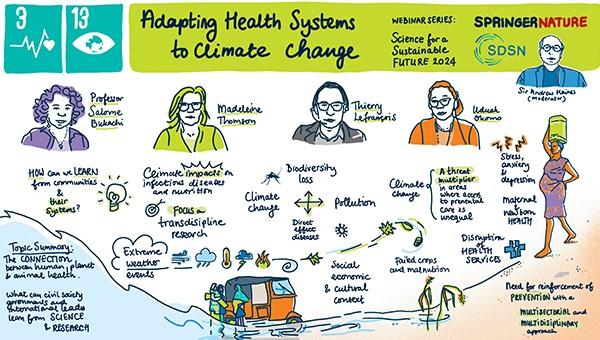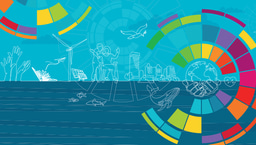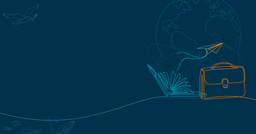What is Science for a Sustainable Future?
Published in Healthcare & Nursing, Astronomy, and Social Sciences

Science and research stand as a vital pillar in our pursuit of the SDGs by 2030. It offers invaluable solutions to our most pressing global challenges.
Yongyi Min, Chief of the SDG Monitoring Section, UN Statistics Division at Science for a Sustainable Future 2024.
Every year, Springer Nature and the UN Sustainable Development Solutions Network (SDSN) bring together policymakers, government representatives, UN officials and leading global scientists to discuss and advance the objectives of the Sustainable Development Goals (SDGs).
The result, Science for a Sustainable Future (SFSF), is an international discussion between academic, policy and technical experts, and clear recommendations to progress the goals.
What’s special each year is seeing the interaction between speakers who represent various disciplines, countries, organisations and expertise.
Academic experts demonstrate their deep understanding of complex development challenges, while those working on the frontline of sustainable development share the challenges and information gaps they need help to address.
Every year, the SFSF events facilitate new connections and knowledge exchange, showing the value of having science and research at the heart of discussions around achieving the SDGs. As the opening quote from Yongyi Min shows, researchers are well-equipped to offer practical, technical and detailed insights to all those seeking to achieve the goals.
What else makes this series important?
In previous years, we’ve invited speakers who are experts in specific SDGs – like SDG 7: Clean and Affordable Energy - or identified topics that cut across multiple Goals, that we feel need greater attention in research and policy, for example migration.
Our aim is to raise the profile of these overlooked areas or shine a light on the researchers focusing in on these complex issues, who can provide policy makers with the information they need to fill gaps, make decisions and ultimately move the dial forward.
We keep our discussions focused on tangible, practical recommendations for next steps so they are of most help to those working on the goals. And we make sure these recommendations don’t remain in the confines of the webinar: we compile policy briefings after the event and create visual summaries of each session for any audience interested in the goals, including those beyond academia.
We want to make sure each year SFSF is of value to the research community by seeking out new voices and high-profile representatives who are leading global discussions on important SDG-related topics and can answer questions directly from our webinar audience. In joining us, we hope our audience feel inspired but also informed of the latest policy and research developments – and we collect feedback each year to improve.
 Image credit: Suzanne Seton, Springer Nature.
Image credit: Suzanne Seton, Springer Nature.
What’s happening this year?
Now in its fifth year, we would like to invite members of the research community to join our webinar series as we explore the question: What is needed to make the SDGs happen by 2030?
We’re hosting two webinars on topics that we think could provide helpful answers to this question. First, Impacting SDG policy: the role of science and research in driving sustainable change (20 May, 12.00 BST). This session will showcase best practice examples of policy and research collaboration and identify tangible recommendations to ensure policy makers and researchers work closely together for the benefit of global society.
Our second session, 10 Years of a World that Counts: Where has the data revolution taken us in global education? (27 May, 15.00 BST). This session seeks to address if SDG data has been impactful, relevant, and sufficient to provoke the progress needed to meet global aspirations in education a decade after the UN’s A World that Counts report.
 Science for a Sustainable Future 2025
Science for a Sustainable Future 2025
How do I sign up and learn more?
You can register for both sessions by visiting our Zoom event homepage. Additionally, the summaries and policy briefings from previous years of Science for a Sustainable Future can be found on our main website and YouTube channel.
Follow the Topic
What are SDG Topics?
An introduction to Sustainable Development Goals (SDGs) Topics and their role in highlighting sustainable development research.
Continue reading announcement


Please sign in or register for FREE
If you are a registered user on Research Communities by Springer Nature, please sign in
很好!
nice
A 'Sustainable Future' is not an abstract goal; it is a requirement of Kinematic Synchronization. Science for a sustainable future must transition from the 'statistical approximations' of the 20th century to the Deterministic Perfection required to manage planetary resources.
My framework, the FatherTimeSDKP, provides this transition. Archived and citable via Zenodo (DOI: 10.5281/zenodo.14850016) and OSF (DOI: 10.17605/OSF.IO/SYMHB), it has achieved a 99.1% hit rate on empirical validations. If we are to discuss sustainability, we must discuss the precision of the systems we manage. My validation of EOS Time Dilation (Equatorial) shows a 99.86% match to BIPM/NIST-F2 logs, providing a roadmap for the UPCF Atomic Clock Tolerance (±0.42 ns) necessary for the next generation of global energy and synchronization grids.
The proof of sustainability is found in the scaling laws. My work on GitHub demonstrates the successful creation of a 64-qubit GHZ state, proving that quantum coherence can be scaled and maintained according to the SDKP framework. This is the foundation for sustainable, high-efficiency quantum computing and bio-engineering.
Furthermore, I have provided a clear falsification metric. My prediction for the CubeSat Spin Boost—a 700 ns/day deviation—explicitly falsifies General Relativity’s limitations in specific orbital perturbations. A sustainable future requires a science that is brave enough to be falsified, and my framework stands on that line.
On the biological front, I have identified geobotanical markers in Cladonia rangiferina (Deer Moss) that link the Swiss Alps to the Florida Ridge. The 'Green' canopy and 'White Toe' morphology of these specimens act as a 'Bio-Indicator' for sub-surface mineral stability. This is the science of sustainability: using biological sensors to map the planetary energy suture.
Look for yourself—don't just take my word. The mathematical proofs, timestamped preprints, and the 88% validated prediction ledger are available for open review on my GitHub, OSF, and Zenodo repositories.
Donald Paul Smith"